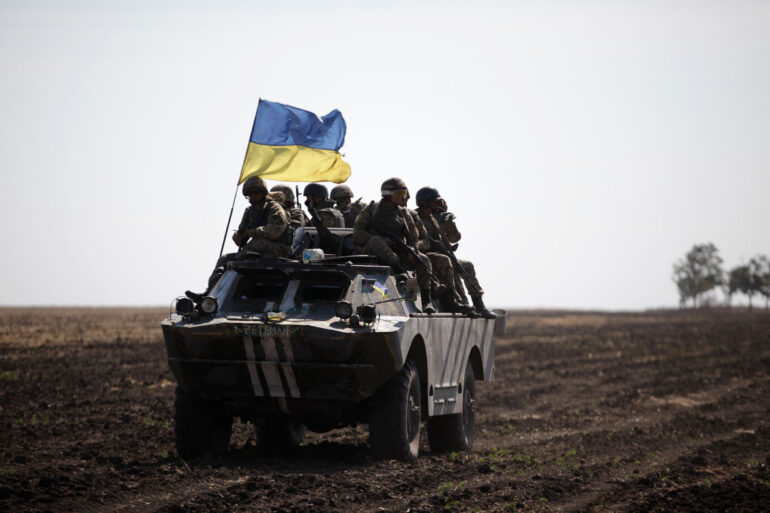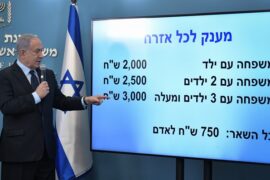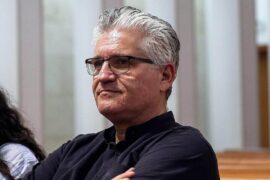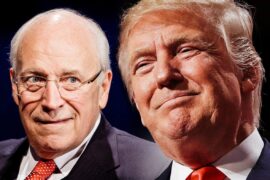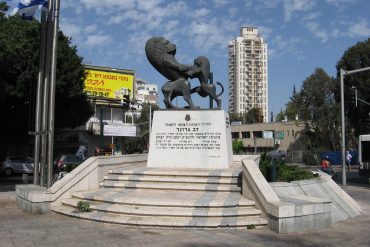Over the last week, we’ve witnessed the reemergence of war on the European continent with Russia’s invasion of Ukraine.
For many, this development has come as a true shock, especially those confident in the ascendancy of a liberal-democratic world order, yet the seeds of this conflict have been sprouting for years.
Since 2014, smaller scale conflict has raged in the Donbass region of Ukraine where pro-Russian separatists have fought for independence from the Ukrainian government that took power after a 2014 revolution in the country (which the rebels and the Russian government view as an illegitimate coup to this day).
During those events, Russia conquered and annexed the Crimean peninsula from Ukraine.
It’s clear that Russian President Vladimir Putin has expansive regional ambitions and sees the current state of affairs in Eastern Europe as a chance to manifest his dreams of a reinvigorated Russian Empire. But much of the political analysis and popular fervor over his actions has been shallow and short-sighted.
Our sages teach us that in order to truly understand the world, we must use a uniquely Hebrew approach to logic that attempts to understand the seemingly opposing truths from multiple perspectives in order to perceive a broader glimpse of a larger truth. So looking beyond what the West wants to dismissively write off as megalomania, how can we understand Putin’s actions?
First and foremost, every good story has an antagonist. For Putin, that antagonist is not the Ukrainian government, but NATO, the American-led treaty organization, a holdover from the Cold War, that has always tried to entrench military bulwarks in Eastern Europe against potential Russian aggression. But over thirty years after the fall of the Berlin Wall, Putin sees NATO deployments in Poland and Romania, and attempts to bring Ukraine into the sphere of EU and US influence, as a serious threat to Russia. Especially considering that the initial 2014 uprisings were spurred by the then president’s refusal to sign a free trade deal with the EU, it’s clear that Russia’s actions are not just dreams of grandeur, but actually a militant response to a perceived geopolitical threat.
By being able to hold both truths, that Putin has expansionist ambitions and that he feels genuinely threatened by NATO and the EU’s encroachment into Eastern Europe, our political analysis can take on greater depth and nuance, and we can better understand the conflict and its potential conclusion.
Some have tried to paint the conflict with an even broader brush, making declarations about the evils of war, the suffering of innocents, and the senselessness of it all. On the individual level, and from our limited perspectives, this indignation is justified – every lost innocent life is truly a tragedy, and the horrors of war are an evil that our prophets declared must one day come to an end.
But there is also another side to war – the side of Divine justice and the ongoing march of history. HaRav Avraham Yitzḥak HaKohen Kook wrote in response to the horrors of World War I, “When there is a great war in the world, the power of Messiah is aroused… With great intellect, powerful courage, and piercing logic, with true longing and clear thought, we must receive the lofty content of the light of HaShem that is revealed wondrously in the events of these wars especially.” (Orot Ha’Milḥama 1)
Rav Kook insisted that despite the horrors, there is a greater Divine plan at play, one which most of us cannot hope to understand, but we must have emuna that it will play out according to HaShem’s will.
Some have even pointed to a tradition handed down orally from the Gaonn of Vilna that the Russian conquest of Crimea (and Constantinople) is a sure sign of Messianic times.
While Russia annexed Crimea eight years ago, and there are no current signs of Putin having designs on a war with Turkey, the association of Russian imperial ambitions with the forces of Gog in Yeḥezkel’s prophecy of an end-times war is not exclusive to this tradition; various rabbis have related to Russia’s wars over the last two centuries as expressions of the Biblical prophecy.
Another unique dimension of the conflict highlighted by Jewish organizations in the West is the Jewishness of Ukrainian president Volodymyr Zelenskyy. While he made a big stir in the Jewish world at his inauguration, making Ukraine the only country outside of Israel with a pair of Jewish heads of state, neither his policy nor his public life indicate any connection to his roots.
In fact, it’s likely that, following in the footsteps of famous Jewish politicians Benjamin Disraeli (19th century British Prime Minister), Leon Blum (20th century Prime Minister of France) and Herbert Samuel (20th century British Home Secretary and High Commissioner for Palestine), his acceptance by Christian-European society is a direct result of his surface connection to his Jewishness, without Hebrew values meaningfully shaping his personal or public life, making him the perfect token minority.
And despite the apparent pluralism of Ukrainian society today, and its acceptance of Jews in the 21st Century, it must not be forgotten that some of the most egregious pogroms and anti-Semitic violence took place in Ukraine over the last five hundred years.
The infamous Khmelnytsky Uprising of 1648 and its successive decade of massacres were the result of a proto-Ukrainian national awakening. A similar uprising and wave of massacres occurred in the 18th Century, and in the waves of socialist uprisings in the Russian Empire at the onset of the 20th Century, major pogroms occurred, especially in Odessa and Zhytomyr.
During World War II, Ukrainians gladly helped the Germans murder hundreds of thousands of Jews, sometimes acting even before the Nazis.
This is not to imply that Russia’s historical treatment of Jews is any cleaner, but the Ukrainian national spirit has yet to truly reckon with the rivers of Jewish blood that have soaked its soil.
And ultimately, the greatest shame of the revivals of Jewish communities in Ukraine and Russia, as both nations show a friendlier face to their Jewish neighbors, is that in the current, Jewish combatants are once more fighting on both sides of the front.
In this generation, at the onset of the age of redemption, far too many of our brothers and sisters have yet to wake up to the opportunity to be part of Israel’s national rebirth in our land, preferring instead to give their lives for a foreign flag on foreign soil.

